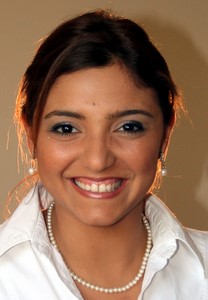This will appear on the USOE website later today: http://www.schools.utah.gov/main/INFORMATION/Online-Newsroom.aspx
Source : OER University group
= = = =
January 25, 2012
For Immediate Release
Contact: Sydnee Dickson, Teaching and Learning director
801-538-7739 * sydnee.dickson@schools.utah.gov
Utah State Office of Education to Create Open Textbooks
SALT LAKE CITY — The Utah State of Office of Education (USOE) today
announced it will develop and support open textbooks in the key
curriculum areas of secondary language arts, science, and mathematics.
USOE will encourage districts and schools throughout the state to
consider adopting these textbooks for use beginning this fall.
Open textbooks are textbooks written and synthesized by experts,
vetted by peers, and made available online for free access,
downloading, and use by anyone. Open textbooks can also be printed
through print-on-demand or other printing services for settings in
which online use is impossible or impractical. In earlier pilot
programs, open textbooks have been printed and provided to more than
3,800 Utah high school science students at a cost of about $5 per
book, compared to an average cost of about $80 for a typical high
school science textbook.
“Utah’s open textbooks are a great use of technology,” said State
Superintendent of Public Instruction Larry K. Shumway. “Texts get into
classrooms quickly and can be updated as needed rather than on a
publishing schedule – something that’s particularly important in
science. The open textbook also adds to Utah’s reputation as the most
cost-efficient school system in the country. This is a fantastic way
to get the latest textbooks into the hands of Utah’s nearly 600,000
public school students.”
“We’re thrilled that the State of Utah is encouraging school districts
to consider adopting open textbooks,” said Barbara Chow, Education
Programs director at The William and Flora Hewlett Foundation, which
helped fund the project. “At a time when education budgets are under
increasing stress, digital technology in the form of open textbooks
now offers the potential to save school systems millions of dollars.”
Later this spring the Utah State Office of Education will invite all
districts and charter schools across the state to attend informational
meetings and professional development designed to help open textbook
adoptions succeed.
The decision to pursue open textbooks at scale comes after two years
of successful open textbook pilots led by David Wiley of Brigham Young
University’s David O. McKay School of Education. Each pilot was
conducted by the BYU-Public School Partnership in partnership with the
Utah State Office of Education. The William and Flora Hewlett
Foundation provided funding. Mathematics and science textbooks will be
based on books originally published by the CK12 Foundation, a
not-for-profit organization based in California founded with the
mission to produce free and open source K-12 materials aligned to
state curriculum.
In new research soon to be published in the International Review of
Research in Open and Distance Learning, Wiley and his colleagues found
that Utah high school students learn the same amount of science in
classes using the $5 open textbooks as they do in classes using the
$80 traditional textbooks.
Filed under: Open Educational Resources | Tagged: OER, oer policy, open content, open textbooks | 1 Comment »




